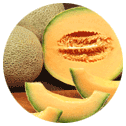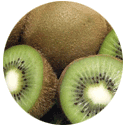Prunes Health Benefits And Nutrition Values
A prune is plum cultivars, mostly Prunus domestica or European Plum, sold as fresh or dried fruit. In general, fresh prunes are freestone cultivars (the pit is easy to remove).Prunes are used in cooking both sweet and savory dishes. Stewed prunes, a compote, are a dessert. Prune juice is made by softening prunes through steaming and then putting them through a pulper to create a watery puree.Prunes and prune juice are thus common home remedies for constipation.

Nutrient |
Amounts/Selected Serving |
DV% |
|---|---|---|
Calcium |
74.8 mg |
7% |
Iron |
1.6 mg |
9% |
Magnesium |
71.3 mg |
18% |
Phosphorus |
120 mgg |
12% |
Potassium |
1274 mg
|
36% |
Sodium |
3.5 mg |
0% |
Zinc |
0.8 mg |
5% |
Copper |
0.5 mg |
24% |
Manganese |
0.5mg |
26% |
Selenium |
0.5mcg |
1% |
Fluoride |
7 mcg |
Nutrients |
Amounts/Selected Serving |
DV% |
|---|---|---|
TotalCalories |
418(1750 kJ)
|
21% |
Carbs |
399(1671 kJ) |
|
Fat |
5.5(23.0 kJ) |
|
Protein |
12.7(53.2 kJ) |
|
Alcohol |
0.0(0.0 kJ) |
Nutrients |
Amounts/Selected Serving |
DV% |
|---|---|---|
Protein |
3.8g |
8% |
Nutrients |
Amounts/Selected Serving |
DV% |
|---|---|---|
Fat |
0.7g |
1% |
Saturated Fat |
0.2g |
1% |
Monounsaturated fat |
0.1g |
|
Polysaturated Fat |
0.1g |
|
| trans fatty acids |
~ |
|
transmonoenoicfattyacids |
~ |
|
trans-polyenoicfattyacids |
~ |
|
Omega-3 fatty acids |
29.6mg
|
|
Omega-6 fatty acids |
76.6mg |
Nutrient |
Amounts/Selected Serving |
DV% |
|---|---|---|
Vitamin A |
1359 IU |
27% |
Vitamin B6 |
60.0mg |
18% |
Vitamin B12 |
120.0 mcg |
0% |
Vitamin C |
1 mg |
2% |
`Vitamin D |
~ |
~ |
Vitamin D3 |
0.0mg |
|
Vitamin E |
0.7 mg |
4% |
Vitamin K |
0.4mcg
|
129% |
Thiamin |
0.1 mg |
6% |
Riboflavin |
0.3 mg |
19% |
Niacin |
3.3mg |
16% |
Pantothenic |
0.7mg |
7% |
Choline |
17.6 mg |
|
Betaine |
0.7 mg |
|
Folate |
7 mcg |
2% |
Nutrients |
Amounts/Selected Serving |
DV% |
|---|---|---|
carbohydrates |
111g
|
7% |
Dietary Fiber |
12.4g |
9% |
Starch |
8.9g
|
|
Sugars |
16.4g |
Nutrients |
Amounts/Selected Serving |
DV% |
|---|---|---|
Cholesterol |
0.0g |
0% |
Phytosterols |
11.6mg |
Nutrients |
Amounts/Selected Serving |
DV% |
|---|---|---|
Alcohol |
0.0g |
|
Water |
53.8g |
|
Ash |
4.6g |
|
Caffeine |
0.0mg |
|
Theobromine |
0.0mg |
- BLOOD SUGAR
- INTESTINAL PROTECTION
- POST MENOPAUSAL BREASTCANCER
- CONSTIPATION
- AGING
- ANEMIA
- DIABETES
- OSTEOPOROSIS
Prunes' are soluble fiber that helps to normalize the blood sugar levels by slowing the rate at which food leaves the stomach and by delaying the absorption of glucose (the form in which sugar is transported in the blood) following a meal. Soluble fiber also increases insulin sensitivity and can therefore play a helpful role in the prevention and treatment of type 2 diabetes.
Prunes' are insoluble fiber that provides food for the "friendly" bacteria in the large intestine. When these bacteria ferment prunes as insoluble fiber, they produce a short-chain fatty acid called butyric acid, which serves as the primary fuel for the cells of the large intestine and helps to maintain a healthy colon. These helpful bacteria also create two other short-chain fatty acids, propionic and acetic acid, which are used as fuel for the cells of the liver and muscles.
In addition, women who had ever used hormone replacement, those consuming the most fiber, especially cereal fiber, had a 50% reduction in their risk of breast cancer compared to those consuming the least. Fruits richest in fiber include apples, dates, figs, pears and prunes. When choosing a high fiber cereal, look for whole grain cereals as they supply the most bran.
How do prunes relieve constipation? Prunes are a good source of dietary fiber. Dietary fiber is a part of plant foods that enzymes in your body cannot digest and therefore not absorbed into the bloodstream. As a result, fiber remains in the colon where it absorbs water and softens the stool, thereby providing health benefits to those people suffering from constipation. It's often recommended to pregnant women because of the many health benefits of prunes.
Prunes are rich in antioxidants and can help your body to slow down the process. Prunes have a top position in the Oxygen Radical Absorbency Scale (ORAC).When the oxidation process takes place in the cells, free radicals are released. These radicals, if not removed then cause serious damage to the cells of the body. It will eventually result in premature aging. But, the antioxidants in prunes and prune juice prevent this by neutralizing the free radicals.
Vitamin A has been proven to be very effective in slowing down the aging process. Prunes are rich in nutrient that promotes the production of collagen in the body. Increased amount of collagen in the skin prevents the appearance of wrinkles.
One of the major health benefits of prunes is its ability to prevent anemia. Decrease in the level of hemoglobin in blood can lead anemia. The reduction of hemoglobin level is mainly due to the deficiency of iron which is necessary for its production. It can cause many serious health conditions including anemia. Prunes are good source of iron which can be used as a natural remedy for treating anemia.
The soluble fiber present in prunes is necessary to maintain a healthy digestive system. Apart from that, they also delay the absorption of glucose in the intestines, thereby preventing an increase in level of blood sugar. It is also capable of making you more sensitive to insulin. Therefore, it can be used in the treatment of type 2 diabetes effectively.
The dried plums were able to reverse osteoporosis in post-menopausal women. Those women were asked to eat 100 grams of dried plums per day had improved bone formation markers after only three months, compared to a control group who were eating 75 grams of dried apples. These health benefits of prunes may be linked to their high concentration of the trace element boron which is postulated to play a role in prevention of osteoporosis and osteopenia.
PERSON WHOM MAY NOT CONSUME PRUNES
- BLOATING & GAS
- LAXATIVE DEPENDENCY
Consuming large amounts of prunes leads to gastrointestinal effects, such as bloating and gas in your body.
The potent laxative properties present in prunes can potentially work too well. Eating prunes every day for long periods of time can lead to chronic diarrhea. similar to stimulant laxatives such as Ex-Lax, long-term use of prunes can cause your digestive system to become dependent on prunes for normal bowel movements.If your digestive tract becomes dependent on laxatives, when you stop taking them you may experience temporary withdrawal symptoms, including constipation, weight gain and fluid retention.















